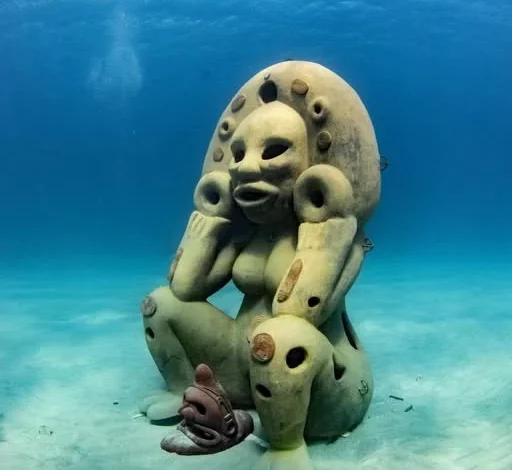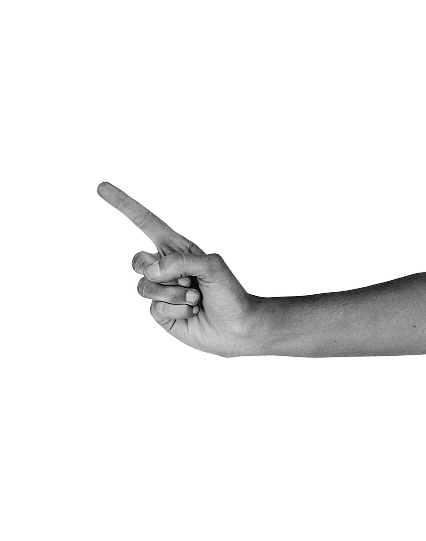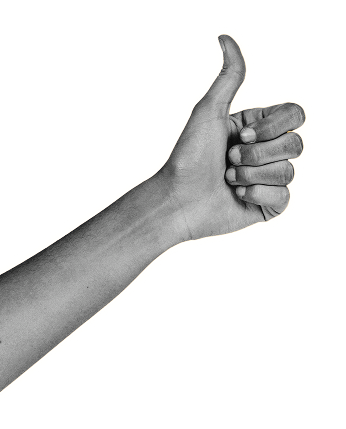
It’s 1492, in Ayiti. We’re making cassava, children are playing, and our Kacike is sharing knowledge. We then see a huge canoe approaching our shores. We’re used to visitors — we often traded with our brothers and sisters in Borikén — but these new visitors looked different. Little did we know that our kindness and generosity would lead to our genocide and land theft.
Fast forward to 2025: our beliefs demonized, our people fewer in number because of colonization, and our murderer still celebrated with statues and holidays. What was once a prosperous and rich land, Ayiti— now known as Haiti and the Dominican Republic —is divided, wounded, and shrouded in ignorance.
On October 2nd, the Dominican Republic announced the removal of a statue of a Taïno deity — or more specifically, a Taïno Zemí — Atabey, the mother of all Zemís and the goddess of fertility. They’re removing her because a Catholic priest demanded it, claiming we should not worship false idols.

Ever since I began reconnecting with my Indigeneity, I’ve been adopting the practices of my people — because I cannot call myself Taïna, or a descendant of Taïnos, without knowing our history, our culture, and our beliefs. To claim that identity is to practice it, to live it. And yet, I’m left wondering if my people are still enslaved — enslaved not by chains, but by our oppressors’ beliefs. Many Dominicans agree with this priest, and it’s made me question: Have we ever truly been free? Will we ever be free?
I’ve always believed the colonization of the African Diaspora and the Americas succeeded not only through violence and land theft, but through the colonization of our belief systems. They took away our gods and made us worship theirs. I bring this up because our current theme is diaspora, and we’re discussing the many ways we’ve been colonized without even realizing it. For example, my people knew Atabey before they knew Jesus. My people knew Yúcahu before they knew Jesus.
It’s a sad and disappointing reality to live in a world where our Indigenous cultures are looked down upon, where our belief systems are dismissed as myth, yet a man born of immaculate conception is not considered myth. And I’m not saying Jesus is a myth, because he is not. I’m saying: if he is not myth, then neither are our beliefs. You don’t have to believe in something to respect it, or to respect the people who practice it. We’ve fought for so long just to stay alive. And yet here we are, still fighting — fighting to keep our traditions, fighting to be respected as human beings, fighting to be taken seriously.
Why is it that our customs are demonized, but the violence through which we were oppressed, and continue to be oppressed, is not? Why is having a multi-god faith considered “demon work”? Why is venerating my ancestors considered “demon work”? Yet the genocide of Indigenous people is not demon work? The ongoing oppression of our people is not demon work?
In saying this, I’m not condemning anyone’s faith. I’m not saying “don’t be Christian,” “don’t be Muslim,” or “don’t practice X, Y, or Z.” You have every right to choose your path, to the way you commune with God, with Creator, with Source. That is sacred. I’m not judging you for how you pray or find meaning. What I am asking is this: Have you ever questioned whether how you practice is fully subservient to your oppressor? Or have you already begun the work, decolonizing your relationship to faith, expanding it to respect other belief systems, and honoring spiritual diversity without fear?
These questions are for those of us whose ancestors were colonized by Christian Europeans. Because the way Christianity was forced upon us is very different from how Judaism existed, and just as Islam spread differently. Even before European colonization of Africa, there was Arab colonization, and that’s why so many Black people globally are Muslim, not Christian.
Understanding this broader history of religious colonization helps us see the present struggles over belief systems — how deeply these forces have shaped perceptions of what is “acceptable” or “sacred.”
And so we come back to the Dominican Republic, and the priests fight against Atabey. The statue should be preserved because it is a symbol of our ancestry; she is the mother of our people. I say all of this to say: Atabey should stay.
This is not just about one statue or one deity; it is about dismantling the mindset that equates anything outside of Christianity with evil. We must release the colonized idea that anything not Christian, anything outside of your chosen faith, is demonic. That belief is rooted in ignorance, fear, and colonization.
And as we reflect on these belief systems and the histories behind them, it’s important to remember the human cost of colonization itself. Today, I mourn all of the Indigenous people murdered by colonizers and by the systems that continue to oppress us. It’s disheartening to live in a world where some still claim ownership over land they do not know how to preserve.
The Dominican Republic was the first stop on the so-called “New World” expedition, but for us, it was already an ancient world, rich in wisdom and spirit. History tried to convince us that we died out, that the Taïno no longer exist. But the truth is, they didn’t get rid of us. We are still here. I write this today — on Indigenous Peoples’ Day — in remembrance and resistance. For our ancestors who were killed, and for the languages, beliefs, and ways of life stolen from us.
Yet we remain. Indigenous peoples across the Americas and the Global South still rise every day against erasure — preserving our tongues, our stories, our connections to land.
I do not speak for all Indigenous people. I speak from my own journey — one of reconnection, reverence, and return. Through this, I’ve cultivated a deep love for this Earth, for our lands, and for the wisdom of our ancestors.
We’re still here. We always have been.
Free Puerto Rico. Free Hawai‘i. Free Palestine. Free Haiti. Free all nations still under the grip of colonial rule.
And just as importantly, free our minds.
Free our minds from colonial programming.
Free our minds from binary thinking.
May we take steps toward freedom, spiritually, mentally, and physically.
Today is for the Indigenous people we’ve lost.
You will always be in our hearts.
You will always be remembered.
We’ll always be here.
Community.

